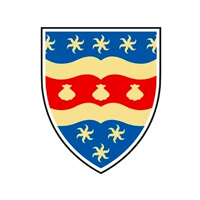fees waived
Podiatry, BSc (Hons)
University of Plymouth, United Kingdom
Subject ranking
UK / ARWU 2024 51st
UK / QS 2025 61st
UK / THE 2025 63rd
Costs
food & rentS$17.2K / year
Entry requirements
Scholarships
Unlimited quantity
Unlimited quantity
Unlimited quantity
Limited quantity
Information
Code
Code
Intakes
Website (External)
Programmes
Information
Duration
2028
Course summary
Podiatrists are experts in foot and ankle health keeping people of all ages active. Choosing to become a podiatrist will give you a broad scope of practice with a scientific approach to diagnosis, treatment and rehabilitation of people with foot problems. A podiatry degree can launch a dynamic career and is a springboard to specialising in other areas of the profession such as sports medicine, injection therapy, independent prescribing, clinical research and podiatric surgery.
- The course has been designed, and continues to be developed, by expert educationalists, service-users and carers.
- Work-based learning is an integral part of the course and you spend 1,000 hours in clinical practice during your three years.
- Opportunities to attend vascular ward rounds at Derriford Hospital.
- Observe an independent practitioner working in the private sector.
- A Ministry of Defence placement is available for high achievers.
- Practitioners with specialist roles are invited to lecture regularly in years 2 and 3.
- Train and practice your professional healthcare skills in an inspiring purpose-built environment, InterCity Place.
Modules
In your first year, you'll learn the key concepts and theories of podiatric practice including anatomy, biomechanics, physiology and podiatric medicine. We teach you techniques to assess the neurological and vascular systems of the lower limb and introduce you to gait analysis. Undertaking essential shared learning with other healthcare students gives you a broad perspective of multidisciplinary work and you gain practice skills through supervised placements in NHS-based training clinics.In your second year, you'll increase your knowledge of podiatric practice for children and older people. Learn about the complexity of foot function and how to recognise and treat pathologies of the foot and ankle. You will gain a good understanding of systemic conditions that impact on the health and function of the lower limb, and build your confidence and the personal skills required to work as a podiatrist in a placement setting. Your skills in the treatment of lower-limb disorders through the application of physical and mechanical therapies, pharmacology and surgery are developed. You learn the research skills required to develop your own research proposal and to support practice with evidence-based learning.In your final year, you’ll undertake patient-focused clinical practice and theory addressing contemporary health issues and complex medical cases. You will also carry out a supervised project in an area that you’re interested in. Modules in the final year are enhanced by external specialist clinicians who are invited to share their skills and knowledge. A business and leadership module at the end of this year equips you with the tools for independent practice. At the end of your studies, you are an autonomous practitioner who is confident to practice your professional skills in the clinical, pharmacological and surgical management of patients in either the NHS or as an independent practitioner.The modules shown for this course or programme are those being studied by current students, or expected new modules. Modules are subject to change depending on year of entry.
Assessment method
For up to date details, please refer to our website or contact the institution directly.
Professional bodies
Professionally accredited courses provide industry-wide recognition of the quality of your qualification.- Health and Care Professions Council
- Chiropodists and Podiatrists, Society of
Qualified teacher status (QTS)
To work as a teacher at a state school in England or Wales, you will need to achieve qualified teacher status (QTS). This is offered on this course for the following level:- Course does not award QTS
In your first year, you'll learn the key concepts and theories of podiatric practice including anatomy, biomechanics, physiology and podiatric medicine. We teach you techniques to assess the neurological and vascular systems of the lower limb and introduce you to gait analysis. Undertaking essential shared learning with other healthcare students gives you a broad perspective of multidisciplinary work and you gain practice skills through supervised placements in NHS-based training clinics. In your second year, you'll increase your knowledge of podiatric practice for children and older people. Learn about the complexity of foot function and how to recognise and treat pathologies of the foot and ankle. You will gain a good understanding of systemic conditions that impact on the health and function of the lower limb, and build your confidence and the personal skills required to work as a podiatrist in a placement setting. Your skills in the treatment of lower-limb disorders through the application of physical and mechanical therapies, pharmacology and surgery are developed. You learn the research skills required to develop your own research proposal and to support practice with evidence-based learning. In your final year, you’ll undertake patient-focused clinical practice and theory addressing contemporary health issues and complex medical cases. You will also carry out a supervised project in an area that you’re interested in. Modules in the final year are enhanced by external specialist clinicians who are invited to share their skills and knowledge. A business and leadership module at the end of this year equips you with the tools for independent practice. At the end of your studies, you are an autonomous practitioner who is confident to practice your professional skills in the clinical, pharmacological and surgical management of patients in either the NHS or as an independent practitioner. The modules shown for this course or programme are those being studied by current students, or expected new modules. Modules are subject to change depending on year of entry.
A local representative of University of Plymouth in Singapore is available online to assist you with enquiries about this course.

